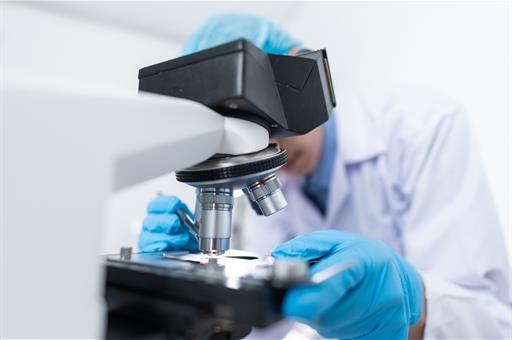Coronavirus COVID-19
COVID-19 Fund to finance new projects for 'visual' detection of virus, diagnostic nanotechnology, super-computing to discover pharmaceuticals and development of potential vaccine
News - 2020.4.15
The latest studies work on the detection of the virus via optical visualisation, diagnostic nanotechnology, supercomputing to discover pharmaceuticals and the development of a potential vaccine.
Through these 15 projects, the COVID-19 Fund, managed by the ISCIII, has allocated 5 million euros to pushing through projects and programmes that seek to enhance knowledge on the virus and find short-term solutions that improve patients' lives and the work of healthcare professionals and researchers. In total, more than 1,300 applications were received from all around Spain.
One of the new projects financed is developing an optical visualisation system of surfaces so as to identify residues of the virus where it has been present. With the help of cameras that cater for different light spectrums it will be possible 'to see' SARS-CoV-2 in a room, for example. The research is being carried out by the University of Seville, the Institute of Biomedicine of Seville and the Group of Technical Specialists in the Deactivation of Explosive Artefacts (Spanish acronym: TEDAX) of the National Police.
Another of the projects works on the identification of immunoglobulin (IgG) antibodies capable of interrupting the interaction of the virus with its cell receptor thanks to the use of nano-sensors. These IgG proteins, which protect the body after suffering an infection acting as antibodies against the disease, are capable of halting the union between the virus and the cells it infects. This diagnostic project, based on nanotechnology, is headed up by the Institute for Biomedical Research and Innovation of Cadiz (Spanish acronym: INIBICA).
In the same way as with another of the projects approved a few days ago, one of the new research projects to be funded studies the repositioning of pharmaceuticals, in other words, the use of already approved medication to treat other diseases and which could be effective against COVID-19. In this case, the project is based on supercomputing, led by the National Supercomputing Centre - Barcelona Supercomputing Centre (BSC), which would speed up the use of new therapies against the disease that are already available in the market with other therapeutic indications. Thanks to the analysis of the action mechanisms of tens of thousands of pharmaceuticals and the biological research into proteins studied in relation to the virus, the supercomputer can make the search for new drugs more efficient and faster, speeding up possible in vitro trials on animals and people.
Finally, the last of the new project selected works on a possible modification of a vaccine that is being developed against tuberculosis, known as MTBVAC, wholly produced in Spain. The development of this project, currently in its final pre-clinical phase, seeks to explore whether the non-specific immunity against SARS-CoV-2 which could be generated by the vaccine is sufficiently effective to as to commence studies on humans in the coming weeks. This research is being headed up by the University of Zaragoza.
Non official translation





